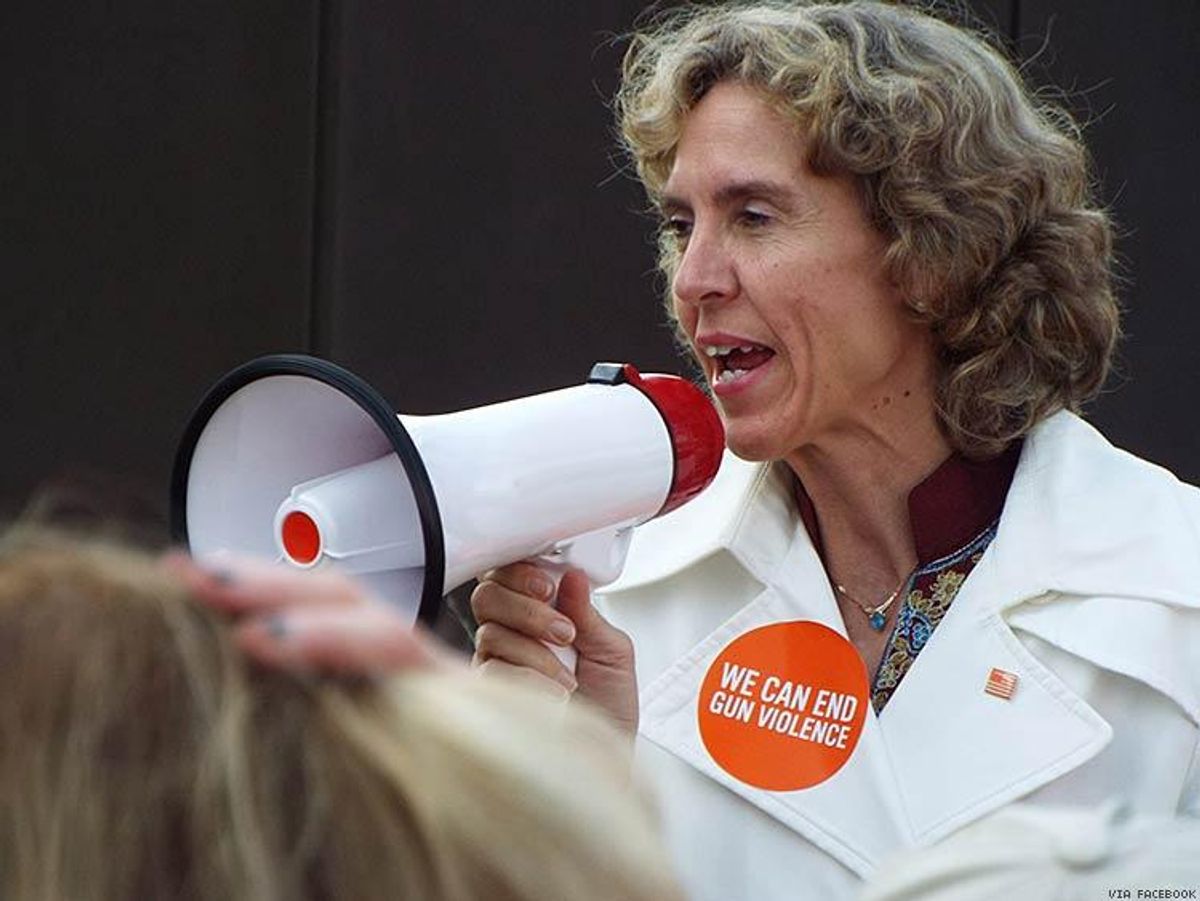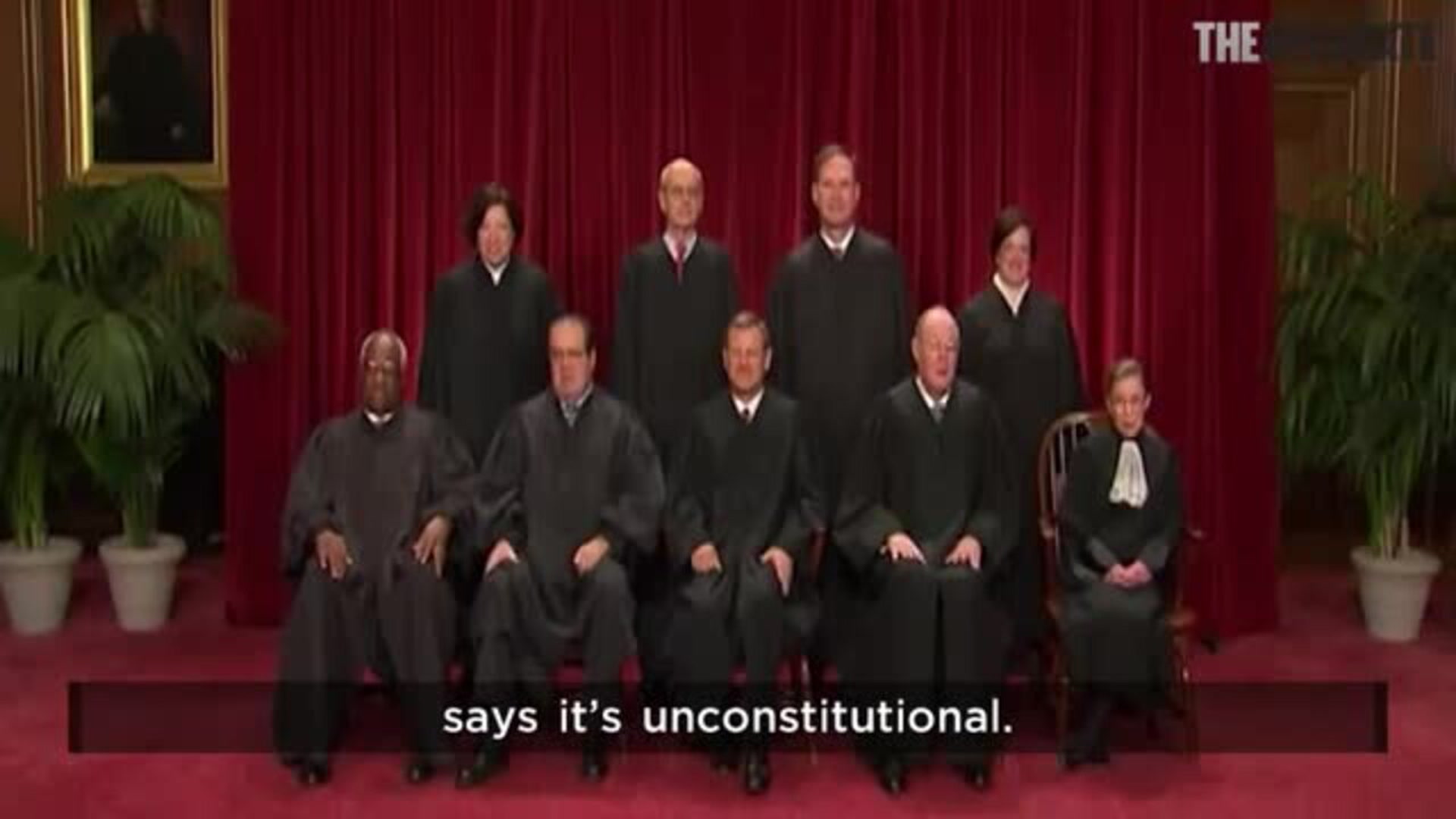Charlotte Mayor Jennifer Roberts woke up March 23 to find her city at the center of a nationwide battle over transgender rights.
In February, the Charlotte City Council passed a resolution -- by a 7-4 vote -- to extend the city's existing nondiscrimination protections to its trans citizens. This would entail equal access in all public accommodations, including city parks, housing, restaurants, employment, and restrooms.
In a special legislative session called specifically in response to the Charlotte ordinance, North Carolina lawmakers introduced, passed, and signed a law, known as House Bill 2, that would effectively strike down that ordinance. The sweeping anti-LGBT law was forced through both chambers of the state legislature and signed by the governor in less than 10 hours.
Formally titled the Public Facilities Privacy and Security Act, HB 2 not only repealed local LGBT-inclusive nondiscrimination policies across the state but barred transgender people from using the bathroom or locker rooms in government buildings that correspond most closely to their gender identity. The law also revoked citizens' ability to sue for discrimination in state court and blocked localities from setting a minimum wage higher than the state's.
The weeks since HB 2 became law have erupted into a debate over the validity of the anti-LGBT legislation. Most recently, the U.S. Department of Justice argued that HB 2 violates federal civil rights law. U.S. Attorney General Loretta Lynch and Principal Deputy Assistant Attorney General Vanita Gupta have stated that the law violates Title VII of the Civil Rights Act of 1964 and Title IX of the Education Amendments of 1972, which ban sex discrimination in employment and education, respectively.
In response, North Carolina has filed a federal lawsuit to challenge the administration's interpretation of federal law. The same day, the Department of Justice filed a federal civil rights complaint seeking to block implementation of HB 2.
The Advocate recently spoke with the Charlotte mayor about HB 2. Roberts, a Democrat elected mayor in November, says she was unprepared for the conservative backlash that followed the passage of the February ordinance:
I have to confess: I did not see this coming. What Charlotte voted on, and talked about for over a year during the campaign and in the community, was really making sure the LGBT community felt equal, felt included, and felt they would be treated equally in all aspects of our community.
I don't think that anyone could have foreseen the swiftness, the overreach, and the deep extent of the backlash the state would bring down on us. We heard that they might not like the facilities part of what we were talking about, but we had no idea that they would come down as harshly as they did and lead to the economic backlash that it did. There are some things you can't predict in politics.
Roberts further explains that her motivation in extending nondiscrimination protections to trans people was personal.
As a mother, I have two teenagers, and of course, they have all kinds of LGBT friends. When I hear them talk about what their friends go through -- even now -- when they are figuring out that their gender identity doesn't match their biological identity, that's a real challenge for them. They are such precious and young human beings. Anything we can do to make them feel loved and feel safe is a great thing.
Although the Charlotte ordinance has since been struck down -- along with those in the five other North Carolina cities that had similar laws -- the city has not given up protecting its transgender residents. Roberts says the local business community has been crucial in helping to provide makeshift accommodations:
We have worked with restaurants, hotels, and some public places that see a lot of folks coming and going.
The Westin Hotel has a big sign out front. The Westin has actually designated a restroom for transgender people. I haven't seen it, so I don't know if it's multifamily, but they have announced that they have. Because technically -- with HB 2 -- they can't let transgender women use the women's room. They have to have a separate facility.
A lot of our businesses have made it very clear that they are friendly to transgender folks, they will protect them, and they will support them.
Roberts believes that the fight over HB 2, while protracted and painful, has been a crucial tipping point in encouraging transgender people in Charlotte to come out and have their voices heard. Increased visibility has had a huge impact on the trajectory of the discussion, she says:
The thing that's happened is that a lot of transgender individuals -- who had not spoken out before -- are now telling their stories. We have employers, we have retailers, and we have public businesses who are realizing, "Wow, I have a lot of transgender employees and customers. This is fair and it's a human rights issue."
That's another step forward -- people are feeling that they can be who they are and be open about it with their employers and their customers.
Roberts acknowledges, however, that one of the most difficult aspects about the nationwide fallout has been the business boycott of North Carolina. Since the law was passed, more than 160 CEOs have spoken out against HB 2, while companies like PayPal and Deutsche Bank have pulled future business from the state.
Unless HB 2 is repealed, the Williams Institute at the University of California Los Angeles School of Law estimates that North Carolina could lose up to $5 billion in revenue every year. That's going to hurt even those progressive cities in the state that are trying to do right by their LGBT residents, says Roberts:
It has had a severe impact. It's not as simple as people saying, "Oh, we lost our concert tickets to Bruce Springsteen." It's not a frivolous thing. We've had 12 or 13 conventions cancel. Those conventions employ a lot of people. There are hotel workers, there are restaurant workers, and there are merchandise vendors who do the caps, the T-shirts, and the pens for all those conventions. This has had a huge ripple impact on our economy.
It's not just Charlotte. It's Greensboro, Raleigh, Asheville, Durham, and Wilmington. Any city that has a convention center is feeling this.
According to Roberts, courting a massive business boycott of North Carolina was never the City Council's intention. She explains:
We never asked anybody to boycott here in Charlotte. We know how important those conventions are. We know how important it is to attract companies. It was other groups that have called for the boycott. We have had to try as hard as we can to grow and work within it and try to get the message out -- even above the din -- that we are a welcoming community and that we remain a place that stood up for equality and will continue to do so.
Nonetheless, Roberts says that in advocating for the law to be struck down, the Obama administration is on the right side of history. And by opposing federal guidance on the issue, Gov. Pat McCrory and the state government are fighting a losing battle, she contends:
I was saddened by [the North Carolina lawsuit]. It might have been an opportunity for the state to say, "Well, we're overruled by the federal government. We understand it's time to repeal HB 2 and let people be who they are -- and also to be in step with federal guidelines." If you look at other federal lawsuits around the country, the federal government has been going in a pretty clear direction.
I was saddened to see that our state is trying to fight that and prolong what I think is going to be the inevitable result -- that the Justice Department is going to let transgender students and teachers be treated equally.
While North Carolina and the Department of Justice debate HB 2 in court, Roberts says she has been working with Charlotte-Mecklenburg schools to ensure that transgender students are protected and provided for. That's keeping in line with new guidance from the federal Department of Education that affirms trans students must be granted equal access to the sports teams and gender-segregated spaces that match their gender identity. But schools in Roberts's district have been following that directive before it was even issued, she says:
We have actually been allowing transgender students to use the restroom they identify with for a while. I've spoken to teachers and counselors. They have been very proactive in this area -- knowing also, by the way, that there are kindergarteners, first-graders, and second-graders, transgender students as young as that, who recognize that they are different than what their biological body says they are.
I spoke to a middle-school club -- a gay-straight alliance -- just yesterday, who have had a lot of conversations around this issue. We went around the room and introduced ourselves. We said our name and we said the pronouns that we go by. We had a couple folks in there use the pronouns "they" and "them." Middle-school students. Everybody was totally cool.
Roberts explains that the biggest obstacle to implementing these policies is the fear generated by laws like HB 2. Anti-trans conservatives have frequently spread the provably false claim that transgender people are "bathroom predators" who hope to gain access to public restrooms to target other bathroom users -- particularly women and children.
However, in the more than 200 localities that have nondiscrimination laws on the books across the nation, there's never been a single reported incident of a trans person attacking someone else in a public facility. Similarly, law enforcement officers have soundly rejected the claim that trans-inclusive ordinances provide legal cover for predators to "pretend" to be transgender to gain access to sex-segregated spaces for nefarious purposes.
But facts aren't always persuasive in the face of fear, says Roberts:
Some people who don't know a lot of transgender individuals worry that someone is going to pretend to be transgender and go into the opposite restroom for nefarious purposes. Even though there have been no incidents of that happening, people do have active imaginations. ... That's one side.
The other side says that we do need a policy of acceptance that is actually mandated, because otherwise kids get bullied, picked on, and punched. We know that's happening -- if you listen to any transgender boy or girl's story.
Roberts is adamant that the voices of transgender Americans will continue to be crucial in helping to overturn anti-trans legislation -- both in North Carolina and across the country. She's hoping to create enough safe and affirming space that transgender people can feel free to share their stories:
I've been encouraging transgender people, especially adults, to tell their stories. I think the best way to prevent more states from doing that is to make it personal for the people who are in power. Everybody has somebody who is LGBT in their family -- whether or not they know it. As more people come out and express who they are, and are allowed to be who they are, we will move more people toward a place of acceptance.














































































